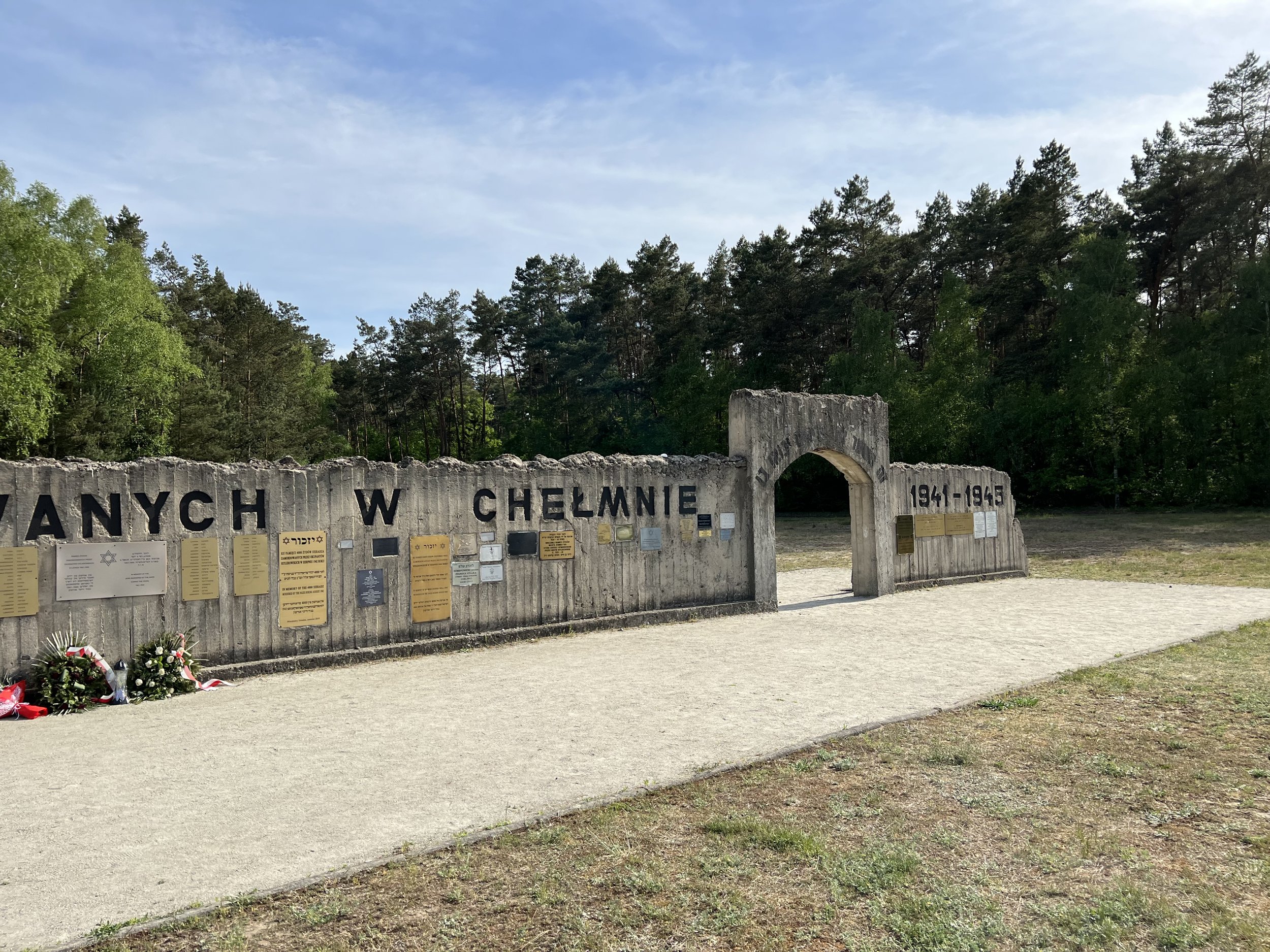Memory, Storytelling, and Chelmno
On Thursday, I visited three powerful places of memory. The Łódź Ghetto, the Radegast train station, and the Chelmno extermination camp. The experiences were unlike anything in my travels as a historian and teacher - and they inspired me to rethink the use of storytelling and teaching history. I have often been critical of relying on storytelling in the classroom. In many ways these individual iterations of historical memory brush up against the history - revealing a thin layer, a singular perception of the “truth” if such a thing actually exists (I think it does, for the record…). I’ve used them often, to acknowledge individual or community experiences as perceptions of the past. I will continue to do so.
But something else that struck me as I heard the stories of tragedy and of survival, some from my own students who lost family in these very places, is that telling stories takes ownership of the narrative. There’s nothing really left at Chelmno of the camp itself, the Nazis destroyed it when they evacuated towards the end of the war - in essence acknowledging their crimes against humanity by erasing the evidence. The victims, the witnesses to these crimes, their bone fragments still scattered throughout the area, are silent.
Who gets to tell this history? This is the question that I will pose to my students in the classroom. How we think about memories, human agency, and the ways in which it all intersects with the reconstruction of the past is important. And there are no easy conclusions here by any stretch. Stories of loss and of survival are key to unlocking this history and how we might comprehensively engage holocaust studies. Further, I think it is why we visit these places. There is little at Chelmno to put the holocaust in context or comprehensively explain the history of the era - a few memorial markers perhaps, but nothing else. Without stories, the Nazis control the narrative - for those concerned with “erasing” history - well here you go. There isn’t much of one here.
One of the historiographical arguments I engaged in preparation for this trip (that written by German historian Martin Broszat) suggests that survivors are too close to the events to offer anything resembling an objective history of the holocaust. Okay, to be fair, survivors will certainly have a point of view. But the idea implies that survivors’ stories have no real practical application in the reconstruction of the past. The author, as I read him, dismissed storytelling as anecdotal.
I think we should take these stories seriously when we think about how history and historical memory interact - and when we reconstruct the past. I don’t claim to have the answers, not at all. But my experiences so far - listening and absorbing - have opened pathways to intriguing questions about human agency and the ownership of narrative. I want to keep that conversation going - especially with my students.
With compliments,
Keith


